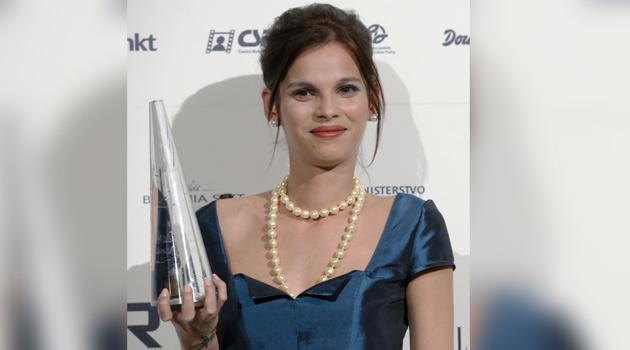Film about Roma wins seven Czech Lion awards, but director doubts it means society cares

categories, such as best film, best director and best screenplay, all went to "The Way Out".
Klaudia Dudová, who portrayed the film’s protagonist, won the Czech Lion for best actress in a leading role during the ceremony at the Rudolfinum in Prague. "The Way Out" also won in the categories of cinematography, editing and sound design.
The film was nominated in a total of 10 categories. The Academy’s opinion was identical to that of the results of the recently-awarded Czech Film Critics Prize.
Critics gave "The Way Out" awards in four categories. The film is about a young Romani mother who refuses to reconcile herself to her adverse social status and does her best to fight for a better life for herself and her daughter.
The protagonist’s bravery and parental feelings help her overcome barriers such as debt, obstacles imposed by the majority society and problems inside her own community. The film also won for best cinematographer (Štěpán Kučera), best editor (Florent Mangeot), and best sound (Ivan Horák and Daniel Němec).
Interview with director Petr Václav:
Q: What does this appreciation of "The Way Out" mean to you? To you yourself, for the film, for its topic?
A: A Czech Lion for Klaudia Dudová and the nomination for Mária Ferencová-Zajacová [for best performance by an actress in a supporting role] were both very exhilarating news. Naturally these women are being appreciated for their acting, and that pleases me greatly as the director who discovered them. Nevertheless, it’s hard for me to tell what the extent of this success is: We have managed, thanks to the film, to bring otherwise forgotten people to the forefront, out in the light of the world, people who didn’t even know how to talk about their capabilities and talent. Thanks to the opportunity they received – not just the two nominated actresses, but also, for example, [actor] Zdeněk Godla – they may continue to succeed. I really hope I will not be the only director to give them work. I would like that to happen, I would like Romani men and women to see in Klaudia and Mária an example of the fact that it is possible to find their own way out, their own chance. It is possible to hold one’s own in life.
Q: Did the film succeed, given the coverage of it, to launch a discussion about the "message" it wants to bring to viewers?
A: I think the film did not at all succeed in launching a discussion commensurate to the problems that "The Way Out" deals with. Unfortunately, that is of course the fate of many important topics. It is as if the Czech media, the schools, and society in general have no interest in discussion, and not just discussion related to our particular topic. By the way, thanks to the film I made this past summer ("We Are Never Alone" – Nikdy nejsme sami) I visited dozens of children’s homes when I was casting the children’s roles. I was astonished to hear how much children who are being raised in institutions in the Czech Republic use homophobic and racist language. The impression I received was that their caregivers do not discuss such topics with them much, that they are not doing enough to lead the children toward tolerance. Not enough is being done, as a matter of principle, about the intolerance these children are bringing with them into the children’s homes from outside.
Q: On the one hand your film is winning many beautiful awards (congratulations), but on the other hand you haven’t broken any records for audience numbers – that was to be expected, it can’t be compared with the commercial mainstream. Are you satisfied with the extent of its release?
A: Naturally we are not satisfied with the extent of the film’s release, even though numbers are, on the other hand, very relative. A couple thousand viewers saw our film in the cinema. In comparison to the number of readers of the most demanding books by a Czech author, that’s basically not a bad result – not economically, but in the sense of reaching the intellectual elite who influence the direction of this society. When it was broadcast on television, on the other hand, we had very high audience numbers. Our film unequivocally pushed its way in there. On the Internet, whenever pirated copies are released, the audience numbers are very good. I believe the failure in the cinemas and in paid online streaming doesn’t say as much about our film as it does about the nature of Czech viewers and the kinds of film consumption they prefer. When we add the fact that "The Way Out" will be distributed in France this spring, I believe that ultimately the result of our endeavors won’t be so bad.